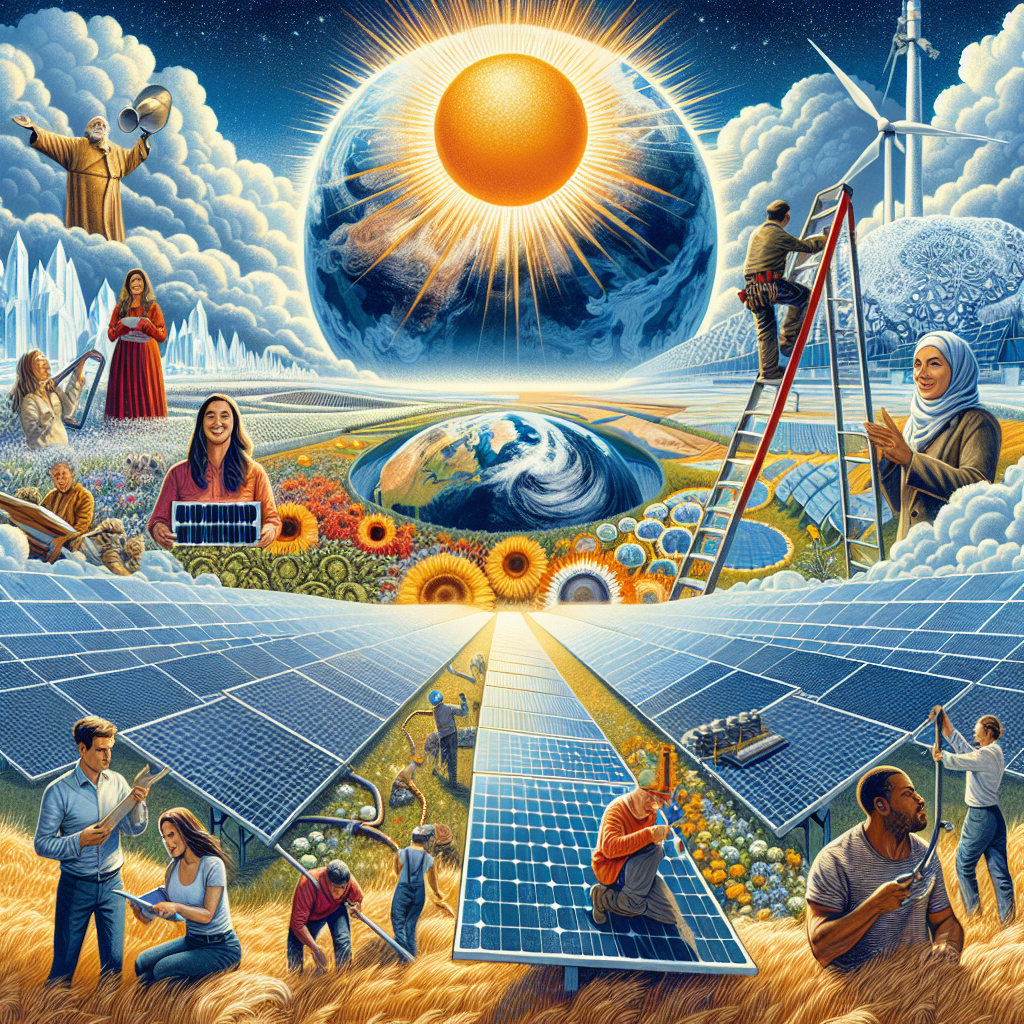<p>As the world grapples with the severe impacts of climate change, renewable energy sources offer a beacon of hope. Among these, solar energy stands out as a potent tool in our fight against global warming. This article explores the connection between solar energy and climate change, and why it is essential for a sustainable future.</p>
<h2>Understanding Climate Change</h2>
<p>Climate change refers to long-term shifts in temperatures and weather patterns, primarily driven by human activities such as burning fossil fuels and deforestation. The consequences of climate change are profound—rising sea levels, extreme weather, and loss of biodiversity, all of which threaten ecosystems and human life.</p>
<h2>The Role of Solar Energy</h2>
<p>Solar energy harnesses sunlight through photovoltaic cells and solar thermal systems, providing a clean and inexhaustible source of energy. Transitioning to solar energy can significantly reduce greenhouse gas emissions, a principal cause of climate change. Here’s how solar energy contributes to mitigating climate change:</p>
<h3>1. Reducing Carbon Footprint</h3>
<p>Solar energy systems generate electricity without emitting carbon dioxide or other harmful pollutants. By replacing fossil fuel-based power sources with solar, we can drastically cut emissions, helping to limit global warming to 1.5 degrees Celsius above pre-industrial levels.</p>
<h3>2. Sustainable Energy Production</h3>
<p>Unlike fossil fuels, solar energy is sustainable. The sun provides more energy in one hour than the world uses in an entire year. This infinite potential is crucial for long-term energy security and climate stability.</p>
<h3>3. Economic Benefits</h3>
<p>Investing in solar energy creates jobs in manufacturing, installation, and maintenance. A growing green economy not only contributes to environmental sustainability but also boosts local economies and enhances energy independence.</p>
<h3>4. Innovations in Technology</h3>
<p>Advancements in solar technology—such as more efficient solar panels and innovative energy storage solutions—are making solar energy more accessible and effective. These innovations continue to drive down costs, making solar a viable option for homes and businesses alike.</p>
<h2>Challenges Ahead</h2>
<p>Despite its immense potential, the transition to solar energy faces challenges, including initial installation costs and the need for improved energy storage solutions. Policy reforms, incentives for renewable energy, and investments in infrastructure are crucial to overcoming these barriers.</p>
<h2>Conclusion</h2>
<p>Solar energy is a key player in addressing climate change, offering a pathway to a cleaner, more sustainable energy future. By supporting and investing in solar technology, individuals and governments can take significant steps toward mitigating climate change and protecting our planet for future generations. The time to act is now; together, we can harness the power of the sun to create a more sustainable world.</p>
<p>For more information on solar energy and its benefits, visit the <a href="https://www.energy.gov/eere/solar/solar-energy-technologies-office" target="_blank">U.S. Department of Energy</a>.</p>




